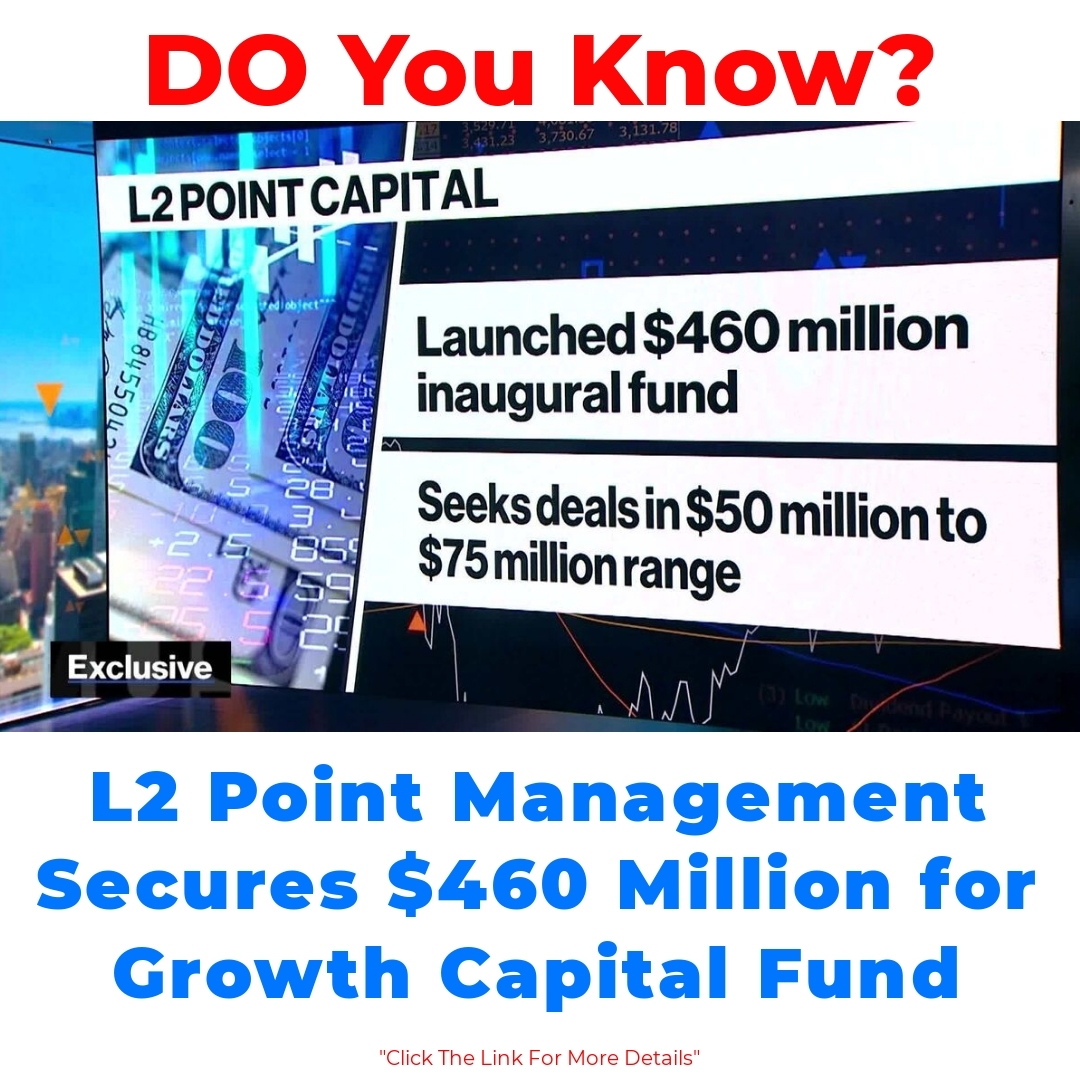Growth Capital plays a significant role in private equity, serving as a crucial driver for business expansion and success. In today’s investment landscape, it offers opportunities for companies to scale and innovate. L2 Point Management’s achievement in closing its inaugural fund with nearly $460 million underscores the importance of capital raising within this dynamic sector.


Understanding growth capital is crucial for anyone interested in the realm of private equity. Growth capital is essentially a form of financing that supports the expansion of a company. It’s designed for businesses looking to scale, innovate, or undergo significant changes without giving up ownership. A key feature of growth capital is that it typically involves equity investments, although it can also take the form of convertible debt. This type of capital is critical in today’s investment landscape, as it provides essential funding for companies aiming to enhance their market presence.
In the broader context of private equity, growth capital serves a vital role. The private equity industry is important for capital markets as it facilitates investment in diverse businesses, often yielding substantial returns. A recent conversation with Kerstin Dittmar on Bloomberg Markets shed light on current trends within the sector. One major insight is how growth capital and private equity intersect, complementing each other perfectly in funding strategies to fuel business growth.
When we explore the structure of growth capital, we discover several types of investments. These can range from minority stakes in mature companies to more aggressive funding for startups and fast-growing firms. Within this structure, different investment strategies are employed, such as providing funding for acquisitions, scaling production, or entering new markets. Moreover, effective capital raising is paramount when establishing a successful growth capital fund, allowing firms to attract the necessary investment.
Now, let’s delve into capital raising strategies. In today’s marketplace, best practices for capital raising involve thorough due diligence and building strong relationships with potential investors. Drawing insights from industry experts like Kerstin Dittmar can illuminate successful strategies. One key takeaway is the significance of having a robust managing partner and Chief Investment Officer (CIO) in place. These individuals play a critical role in securing capital and ensuring the fund’s success.
Fund management is another critical aspect to consider. This entails overseeing the fund’s investments and ensuring the implementation of sound investment strategies. A well-structured capital framework can lead to favorable investment outcomes, setting the stage for growth. Effective fund management not only drives performance but also enhances investor confidence, which is essential for attracting new capital.
Now, if you’re wondering how to break into private equity, here’s a mini-guide. Firstly, it’s important to have a solid foundation of key skills and qualifications, which often includes a strong background in finance or investment banking. Networking is invaluable in this industry, so attending seminars and connecting with seasoned professionals can provide critical insights. Additionally, mentorship is crucial—advice from experienced individuals can guide you on your journey. Insights from Kerstin Dittmar highlight that pursuing internships can also be beneficial in finding pathways into private equity.
Gathering insights from private equity managing partners can reveal what it takes to succeed in this domain. Key factors for success often include a deep understanding of the market, a strong network, and the ability to adapt to changing economic conditions. The experiences of L2 Point Management in establishing its inaugural fund offer valuable lessons—it’s a reminder of the importance of strategic planning and execution when navigating the private equity landscape.
In conclusion, growth capital holds immense significance in private equity, acting as a catalyst for business expansion. As the investment landscape evolves, understanding the nuances of growth capital becomes increasingly important. Industry experts provide valuable insights, and considering these perspectives can be incredibly helpful for newcomers looking to navigate this complex landscape.
We invite you to share your thoughts or experiences regarding growth capital and private equity. If you’re interested in staying updated with more insights, consider signing up for newsletters or following L2 Point Management for the latest trends in the industry.
FAQ about Growth Capital
What is growth capital?
Growth capital is a type of financing used to help businesses expand or innovate without losing ownership. It often involves equity investments, but can also be in the form of convertible debt.
How does growth capital differ from other private equity financing?
Unlike traditional private equity that may involve buyouts, growth capital typically focuses on investing in companies that are looking to grow, scale, or undergo transformations.
What types of businesses benefit from growth capital?
Growth capital can benefit a range of businesses, from startups to established companies seeking to increase market share or enter new markets.
What are effective capital raising strategies?
- Conduct thorough due diligence.
- Build strong relationships with potential investors.
- Have a strong managing partner and Chief Investment Officer.
What role does fund management play in growth capital?
Fund management involves overseeing investments and implementing effective strategies, which helps enhance investor confidence and improves performance outcomes.
How can someone break into the private equity industry?
- Obtain a solid foundation in finance or investment banking.
- Network by attending seminars and connecting with professionals.
- Seek mentorship and pursue internships for practical experience.
Why is understanding growth capital important?
As the investment landscape shifts, knowing the ins and outs of growth capital is critical for anyone looking to navigate private equity successfully.
How can I stay updated on trends in growth capital and private equity?
Consider signing up for newsletters or following industry experts like L2 Point Management for the latest insights and trends.





